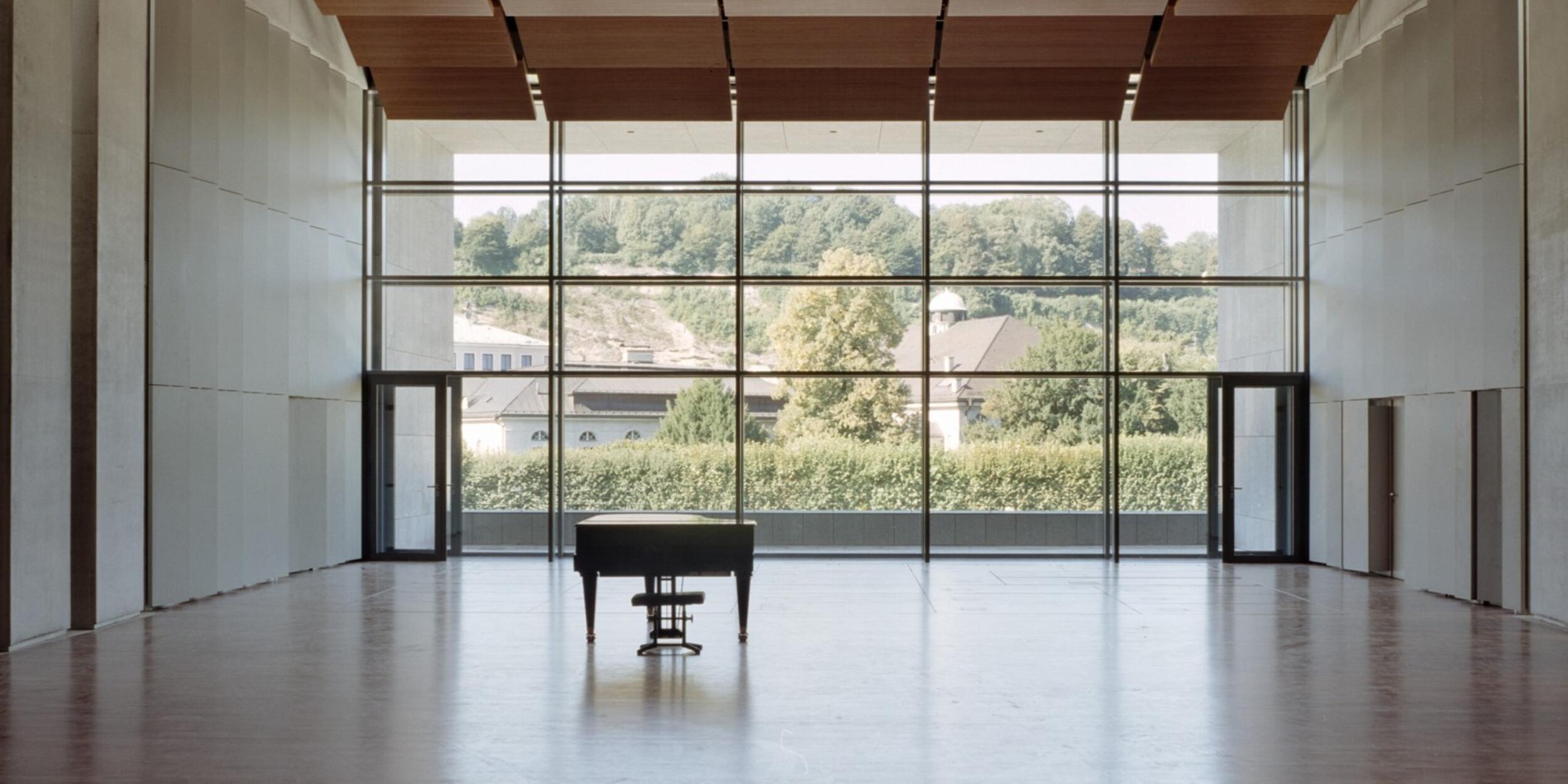
Prizes for an outstanding Master's thesis 2023/24 have been awarded to Tim Anselm Gebel, Carlos Goikoetxea Cancho and Andreas Johannes Neubacher - congratulations!
+++ Study Information Days 2026 for many of our studies: all dates can be found in the event calendar! +++

With the beginning of March begins the third semester
under the sign of the virus, still universities are
"until further notice" in distance teaching. On the periphery of the field of vision, art universities are struggling to maintain the course of studies: Although much takes place under strict security precautions
in face-to-face teaching, but there is a lack of the publicity that is essential to the realization of art.
Art is created in the eye of the beholder. With his provocative 4'33’, the American composer John Cage made it clear as early as the 1950s that only hearing turns the audible into music. Seeing and hearing, understanding and appreciating are to be understood as achievements of civilisation. The composer Jean Sibelius put it in a nutshell: ‘Art is the signature of civilisation.’ The reverse conclusion is obvious: in times of Covid-19, this signature is fading and civilisation is losing its contours. And perhaps, after a long period of existence as screen existences, we will awaken in Michael Ende's ‘never-ending story’: in the fading of civilisation and its power of imagination. This makes the countless initiatives and activities of artists against the silencing and disappearance all the more encouraging. They find support in the media, the fourth estate in the state, which celebrates the urgently needed perception in the best possible way and thus prevents the the best possible way and thus offers the survival of art's fading out by decree. Monument! Our language is also full of images and makes us sit up and take notice; it provides information about short-term thinking in crisis situations and the underlying mindset. ‘System relevance’, for example, raises several questions at once: What does ‘system’, a term that is otherwise more likely to be localised in totalitarian states, mean in this context? And In the event that ‘system’ here stands for society or health, what does the exclusion of education and culture from ‘system relevance’ signal to us? That negative tests are to be regarded as positive, is unlikely to be adopted in the education system, and the Anglicisms distance learning, homeschooling or home office are difficult to translate into German: Working from home sounds outdated, distance learning or distance mode are linguistically opposed to the internalisation or appropriation of learning content. linguistically.
We keep our distance and zoom in on our private spheres. But how much closeness can we tolerate and how much distance do we need? Between isolation and exposure stands a nice baby elephant as a Pokémon figure. Really? The need for protection urgently needs to be re-examined, because what is at stake here is the mental health of our society and therefore its future viability. In the artistic process of making in-between tones and silence audible, visualising interstices and emptiness, exploring counter-worlds and interrogating counter-algorithms, a reconquest of the world can take place that has been blocked out in the noise of crisis mode. When Goethe upholds art as the mediator of the inexpressible, this is exactly what he means. Artistic creation, creativity and culture expand the realities of our lives and thus also the possibility of diversity in communities. It is also worth noting that a recently published study on the cultural and creative industries before and after Covid-19, published by Ernst & Young in close cooperation with GESAC, an association of 32 European collecting societies, under the title ‘Rebuilding Europe’, shows the economic weight of this sector and the high growth potential that became apparent in the years 2013 to 2019. that became visible between 2013 and 2019. With a trade balance of 8.6 billion euros (2019) and 7.6 million jobs, the H&C economy is or was an important sector. In 2020, turnover fell by an estimated 31 per cent, with theatre (-90 per cent) and music (-76 per cent) being hit the hardest. The study concludes that the crisis will have a massive and lasting impact on the entire value chain of the cultural and creative industries and presents a three-stage plan to meet the challenge of ‘Rebuilding Europe’. Rebuilding this sector also means rebuilding our civilisation as a normative force of our self-image. The current generation of students must play a part in this reconstruction, As a university, we should support them.
‘Art is what you can get away with.’ - Andy Warhol
(First published in the Uni-Nachrichten / Salzburger Nachrichten on 1 March 2021)